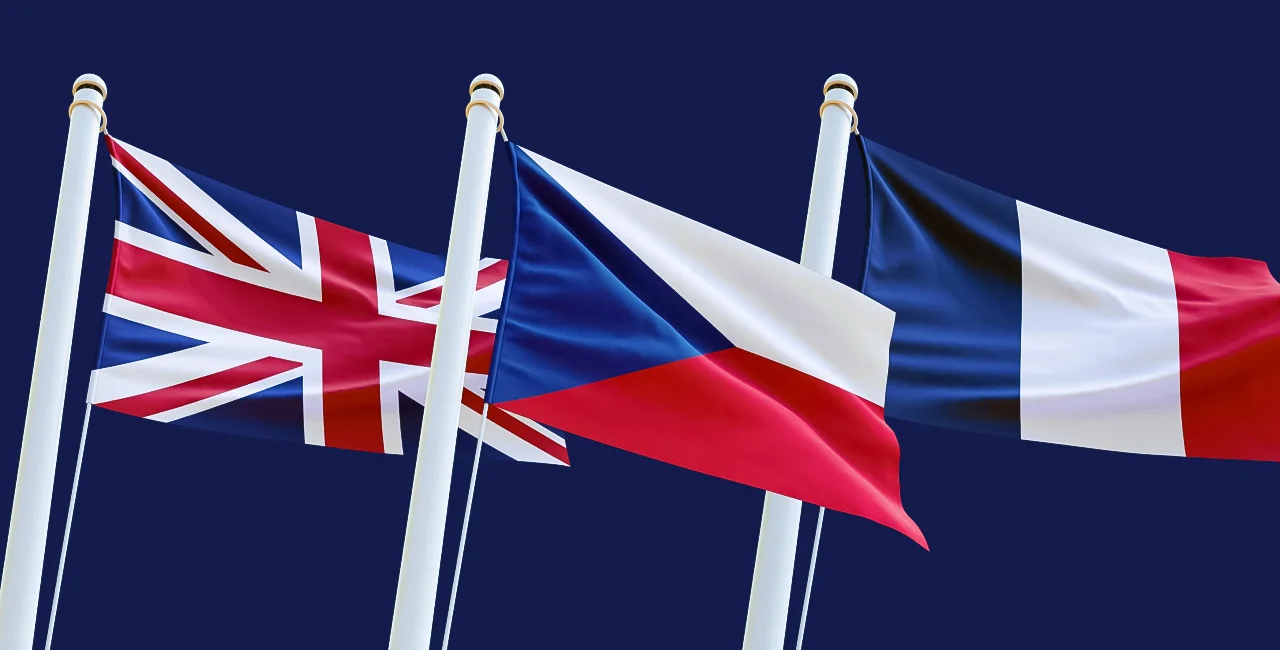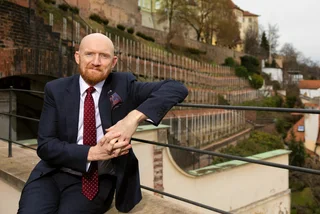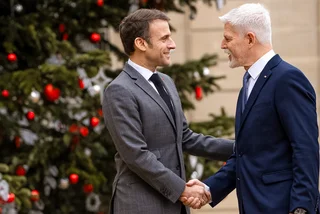Massive general election results in two major European countries – France and the UK – have dominated the news cycle on the continent in recent days, also evoking comments from the Czech prime minister and president. How, though, will new governments in France and the UK impact global, EU, and Czech politics?
What exactly has happened?
Brits went to the polls on July 4, firm in their decision to vote out the right-wing Conservative Party that has been in power since 2010. The results were overwhelmingly supportive of the country’s Labour Party – Britain’s largest and main left-wing party won 412 out of 650 seats in the Houses of Parliament (the lower house), giving it a clear and massive mandate for future policymaking.
The situation is a little more complex over in France. Results from the second round of snap parliamentary elections called last month shocked the French electorate: the New Popular Front (NFP) leftist coalition won the most seats (but failed to gain a majority), with President Emmanuel Macron’s Ensemble party in second place and – the biggest surprise – the far-right National Rally underperforming in third.
While the election results are unequivocal in the UK, political instability and paralysis now threaten France as the three parties will need to form an unlikely coalition in the coming days and weeks.
What do the results in the UK mean?
Foreign policy in the UK is unlikely to see major changes, and the UK-Czech relationship should continue as it has in recent years.
The Labour Party has long pledged its unambiguous support for Ukraine. “If there is a change of government after the election, there will be no change in Britain's resolve to stand with Ukraine, confront Russian aggression, and pursue [Russian President Vladimir] Putin for his war crimes,” said Shadow Defence Secretary John Healey said last month.
Procurement Specialist

AI Engineering Team Lead

Strategic Business Development Lead | Advanced Com

In the context of international security, Labour has said its commitment to NATO as the cornerstone of European and global security is "unshakeable" – good news for Czechia, which seeks added security in the face of Russia's threat.
What do results in France mean?
We still don’t know who the ruling party in France will be, but assessing each party’s foreign policy goals gives us a good indication of what to expect.
The party with the most votes, NFP, has in the past promised unwavering support for Ukraine. Its platform states it "unconditionally supports the sovereignty and liberty of the Ukrainian people as well as the integrity of their borders.”
In a turnaround from the first round of voting, a coalition of left-wing parties, the New Popular Front, won the most seats but fell short of an absolute majority in the French parliament
— Bloomberg Graphics (@BBGVisualData) July 8, 2024
🔗🇫🇷🗳ï¸: https://t.co/lVOmXt2NPm pic.twitter.com/EprbhQWNo0
Macron’s Ensemble has historically been pro-Ukraine, with the president assuming an even more hawkish tone in recent months, going so far as to suggest troops could be sent to Ukraine to fight Russia.
RN is broadly pro-Ukraine, but has a cooler tone than the other two main parties. When commenting on supplying Ukraine with weapons, party president Jordan Bardella said that France should give Ukraine “the necessary means” so that the country could defend itself.
RN figurehead Marine Le Pen said in an interview with U.S. news outlet CNN this month that the party would prevent Kyiv from using French-supplied long-range weapons to strike inside Russia. She also disagreed with Macron’s idea of sending troops to Ukraine.
Political analysts have said that a coalition between any of the parties could risk disagreement, policy delay (or uncertainty), and the “weaponization” of Ukraine for political means. This is bad news for Czechia, which wants a unified EU against Russia. CNN political commentator Joseph Ataman wrote that “a far-right government would be welcome news for Putin,” reminding readers that Le Pen has in the past boasted of her admiration for Putin, refused to condemn Putin’s illegal annexation of Crimea in 2014, and even took out a huge loan from a Russian bank.
Unlike the other parties, RN is Euroskeptic and wants to curb immigration. In the context of the EU’s recent migration package, its opposition to accepting migrants and refugees from the Middle East is technically similar to that of Czechia, though could pose problems when it comes to setting refugee-relocation quotas.
RN is also unique in its general opposition to environmentally friendly policies. In the context of Czechia's disagreement with the new Euro 7 emissions standards set by the EU, this is again a rare overlap between the Czech government and RN.
How have Czech leaders responded?
Commenting on the British Labour Party’s victory, President Petr Pavel congratulated new British Prime Minister Keir Starmer on his election result, also saying that the Czech Republic and UK “think alike” on many issues.
In a similar vein, Prime Minister Petr Fiala said on social media that Czechia and the UK “have a strong long-term cooperation based on a number of specific themes.” The prime minister declared: “I am convinced that we can continue to develop this.”
Congratulations to @DavidLammy, the newly appointed British Secretary of State for Foreign Affairs. I look forward to continuing the extensive cooperation with our partner and key ally. 🇨🇿ðŸ¤ðŸ‡¬ðŸ‡§
— Jan Lipavský (@JanLipavsky) July 5, 2024
With France’s election result still fresh from last night, senior leaders have not yet made comment on the election. This is bound to happen when France’s final government formation becomes clear – though it could be a long and uncomfortable wait.
EXPERT COMMENT
- Political scientist Monika Brusenbauch Meislová of Masaryk University believes: “The UK will continue to be an absolutely key ally for Ukraine. We can also expect an effort from Labour to establish some closer relations [with the EU].”
- Political scientist Petr Kaniok, director of the International Institute of Political Science, says: “There is quite a broad consensus in Britain that the relationship with Russia needs to be robust and clear.”
- Vít Hloušek from Masaryk University’s Department of International Relations says: "The post-election negotiations [in France] will be very complicated, because on the one hand there are quite fundamental programmatic differences between the NFP and Ensemble, and on the other hand there are quite significant political and personal animosities between politicians from the three main parties.”
- Political commentator Alex Švamberk writes in Novinky.cz: “The NFP still has strong pro-Palestinian and Arab voices, is often anti-Semitic, and it is not even clear on how exactly it would support Ukraine."
- Michal Pink from the Department of Political Science at Masaryk University believes that Macron will be able to form a coalition with the NFP. However, Pink says that the "long-term strategic victory belongs to Le Pen," who may capitalize on progress in three years' time.












 Reading time: 5 minutes
Reading time: 5 minutes 



 Hungarian
Hungarian
 Russian
Russian
 Ukrainian
Ukrainian


























